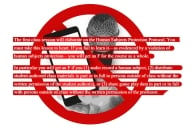You have /5 articles left.
Sign up for a free account or log in.
Statewide higher education offices in seven Midwestern states have banded together to help student veterans earn college credit for the training and experience they receive in the U.S. military.
Roughly one million veterans have enrolled in college after returning from wars in Iraq and Afghanistan. Many of those students say they have not received an adequate number of credits for skills they learned while in the military.
A growing number of lawmakers are paying attention to that problem. Some say they want student veterans to avoid wasting time and money re-learning what they already know.
The coalition in the Midwest is doing its part to help out, said Ken Sauer, senior associate commissioner for research and academic affairs at Indiana’s Commission for Higher Education. He described the so-called Multi-State Collaborative on Military Credit last week during a hearing held by the U.S. House of Representatives’ subcommittee on higher education.
Sauer explained how the “grassroots effort” began 18 months ago with colleges, systems and state higher education executive officers (SHEEOs) in Illinois, Indiana and Ohio. Joining later were Kentucky, Michigan, Minnesota and Missouri.
In particular, Sauer praised the Minnesota State Colleges and Universities System for going above and beyond in its efforts to help veteran and military students adjust to college. Transfer credit is part of that process.
Minnesota’s public colleges, as well as those in the other six coalition states, use credit recommendations from the American Council on Education to determine how much prior-learning credit student veterans should receive when they enroll.
ACE, which is higher education’s umbrella group, has been making military credit recommendations for decades. Its training program reviews include visits to military bases by faculty members who are on contract with the council. Sauer praised that approach during the hearing, saying it “has integrity.”
However, the coalition has been pushing behind the scenes for the council and the U.S. Department of Defense to release more information about the credit recommendation process. The reason is that officials in those states feel that colleges would award more credits to veteran and military students if they had access to deeper documentation.
“Because faculty at many institutions have not had the advantage of reviewing the documented evidence gathered through the ACE evaluations, they do not understand the rigorous, faculty-driven process,” Sauer and other leaders of the coalition wrote in an August letter to the council, which Inside Higher Ed obtained.
As a result, “acceptance of ACE recommendations has not been fully developed across our colleges and universities,” the letter said. And when recommendations do lead to transfer credit for incoming students from the military, too often those credits go toward general electives and do not count toward majors.
Faculty members would like to know more about the specific learning outcomes, modes of instruction and types of assessments in military training, according to the letter.
Officials at the council have discussed the release of more information about their military credit recommendations with the multi-state coalition. While much is already available, they said they support moves to help colleges make broader, appropriate, use of credit recommendations.
“We’re looking into that right now,” said Cathy A. Sandeen, the council’s vice president for educational attainment and innovation. “We want to provide more transparency.”
More Data, More Credit
Prior learning assessment has gained traction in recent years, thanks mostly to the national college completion push.
For example, President Obama has called for the wider acceptance of prior learning credits. And the hearing last week drew bipartisan praise for ACE’s military credit recommendations.
Not everybody is sold on prior learning assessment. Critics, particularly some faculty members, say it can cheapen the value of a degree. But military credit recommendations are the most established and least controversial form of prior-learning credits, in part because of the standardization and rigor of military training.
Sauer, during his testimony last week, asked ACE and the Pentagon to open their books on military credits.
With more information he said colleges could better apply prior-learning credits, for the right courses. He called for the release of the complete data file the military uses to describe service members’ specialties, as well as the corresponding ACE credit recommendations.
Many states and institutions in the coalition use software to determine and store transfer credit decisions, said Sauer. But the contract between the Pentagon and the council does not allow the software vendors colleges work with to freely download that information.
“It would be really great if colleges could have access to that data file,” Sauer said in an interview.
One reason the data dump would help is because military training and experience doesn’t always match up obviously with a specific college course. It would useful to have more information about tangible learning outcomes in the training, Sauer said, as well as clues to how institutions have made similar calls about military credit recommendations in the past.
“You can get an idea of how other colleges treat this,” he said.
There could be some snags with releasing the data file, however, said officials at the council.
For one thing, the credit recommendations are hardly simple. Some give a range of options for specific training outcomes, said Sandeen, such one credit in a course and two in another.
“It’s not really plug and play,” she said.
There are also confidentiality aspects to the contract between ACE and the Defense Department, mostly on the military’s side, said Anne Hickey, director of government relations for the council. Not all the details about some types of military training are cleared for public release, even parts that ACE’s faculty reviewers scrutinize.
The Defense Activity for Non-Traditional Education Support (DANTES) manages the contract for the Pentagon. Hickey said it’s largely up to DANTES to authorize the release of more data.
An official there did not respond to a request for comment. But Sauer said contacts at the Defense Department were sympathetic to the coalition’s plea for more information about credit recommendations.
The council, in a letter sent Tuesday to Sauer and other officials with the coalition, said they expected the Pentagon to respond to that request in a week or so.








